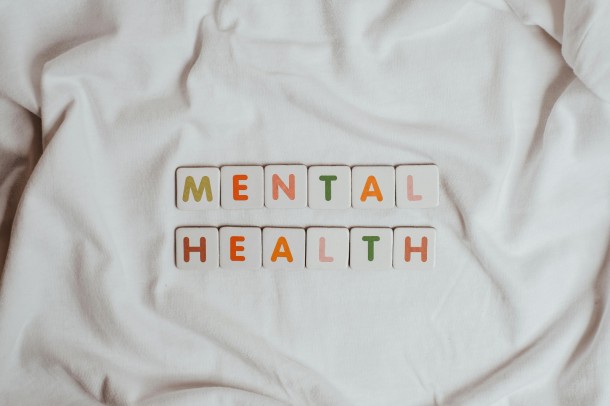We all feel stressed at times, but what one person finds stressful may be very different from what another finds stressful.
Stress is a physiological response to an actual or perceived threat. It is our natural response to situation or an event that we perceive a challenging or even threatening. When we experience stress, our body produces hormones such as cortisol and epinephrine. In prehistoric times, when a person encountered a life-threatening situation such as being attack by an animal, the body needed to handle the emergency immediately. This has come to known as the fight, flight or freeze response.
Life is different now, and while most of us seldom face immediate, life-threatening dangers such an attacking animal, we do face a lot of daily stressors, and our body doesn’t always know the difference. As a result, the flight, fight, or freeze response can arise due to feeling overwhelmed at work or worrying about finances or health. If our brain perceives danger even when there isn’t an immediate physical threat and this automatic reaction occurs repeatedly and remains unchecked, our level of stress can build over time. Severe, frequent, or prolonged stress can be mentally and physically harmful.
Explore: How Is Stress Affecting Your Life?
Take some time to reflect on the following questions, noticing whatever comes in your thoughts, feelings, and sensations. When you’re ready, write some of your thoughts below. You may have more to write for some questions than others; this is fine.
- How is stress about people affecting your life?
- How is stress about work affecting your life?
- How is stress about the world affecting your life?
- How is stress about food and eating habits affecting your life?
- How is stress about sleep and sleeplessness affecting your life?
- How is stress about exercise or lack of physical activity affecting your life?
We want to acknowledge and validate whatever you wrote about how your life is impacted by stress about relationships, work, our view of the world, eating habits, sleep, and physical activity. As awareness grows, you can begin to see more clearly how stress affects so many areas of your life. While this is normal, the fact that you are now becoming aware is an important step toward greater well-being.
Stress Management
Stress management is putting yourself into a different emotional state, a state in which you interrupt negative patterns of thinking, feeling, and behaving and replace them with empowering thoughts, emotions, and behaviours.
Of course, this doesn’t mean the stressors go away. What changes is our ability to handle them.
TIPP to Calm Yourself in the Middle of a Crisis
T stands for temperature. You can change your emotional state by doing something to alter your bodies temperature. This might mean turning on a faucet and putting cold water on your hands or face, taking a cold shower, dunking your face in ice water, holding an ice cube in your hand, or putting an ice pack on your stomach or back. The cold will shock you out of feelings and bring you back to the present.
I stands for Intense exercise. The goal isn’t to exercise for a long period of time but to do a few minutes of intense exercise to get the energy out of your body and refocus your brain. This might be jumping jacks, walking or running up and down stairs or jogging in place. If seated, it could include tightening and then relaxing your fists.
P stands for Paced breathing. One way to do this is to use the box technique in which you breathe in to a count of four, hold for a count of four, breathe out for a count of four and hold for a count of four. You can also use a nostril breathing technique or breathe deeply and slowly for a few minutes as well.
P is Paired muscle relaxation. Typically, you’ll tense your muscles while breathing in, hold, and relax your muscles when breathing out. You can do this by tensing and relaxing your entire body or by tensing and relaxing different body parts such as hands or feet, legs, shoulders or arms. You can do it by tensing and relaxing your fists or doing shoulder rolls, tensing as you roll your shoulders forward and up and then relaxing as you move them backwards and down.
So, remember TIPP and use these tactics when you’re feeling overwhelmed with emotion and to do something to discharge it and calm yourself.
Techniques to Interrupt Your Stress Response and Calm Your Mind and Body
A Partial List of Techniques to Interrupt Your Stress Response:
• Pause and pay attention to your breathing
• Become more mindful of your present experience
• Listen to calming (or energizing music)
• Take a few minutes for meditation
• Body scan
• Do deep relaxation
• Exercise; become more active; move your body
• Visualize yourself in a safe place
• Practice self-care (take a warm bath; engage in a hobby)
• Take a time out
• Journalling
• Talk to a friend or find a support group
• Go for a mindful walk
Different techniques work for different people, so think about this list and then come up with techniques that would work for you.
Three-Step Process in Handling Stress
Face Your Feelings. Understandably, we want to avoid negative emotions. Avoiding our feelings doesn’t make them go away. They just go underground and come out in more harmful ways—such as aches and pains, illness, irritability, sadness or shutting down, or even engaging in destructive, avoidance or addictive behaviours like excessive drinking, drugs, gambling, media consumption, and others. Pay attention to your emotions. Often, this is a short pause in which you ask yourself what you’re feeling at the moment and then look inward, at the physical sensations and feelings in your body. The idea is to give your feelings space, not try to get rid of them. Relax into them. Allow them to be. It is okay to feel anxiety or fear or irritation, whatever it might be. Be compassionate about what you feel, as a way of taking care of yourself when you notice a persistent negative emotion.
Take a look at your thoughts, the story you are telling yourself about what’s going on. You create thoughts and the meaning about what’s happening. There are stories that are useful, and which serve you and those which do not. So why not tell yourself a story that allows you to feel something that will empower you during stressful time and not something that leaves you only anxious and depressed.
Get into action. What action? It depends. You have to decide. Action is a way of respecting yourself and affirming your resourcefulness and power. It feels good. There are lots of ways to take action. Watching Netflix, playing video games, or scrolling on your socials all day do not qualify. Not that there is anything wrong with these things. You may need them as a temporary diversion and way of taking care of yourself. But action involves doing something that empowers you.
If you can’t manage your stress, or if it is accompanied with anxiety or depression, seek professional help right away. These conditions can be managed with treatment and intervention.
As Mental Health Awareness Month theme for 2025 “Turn Awareness into Action”, TASE Center wants to empower our community to become aware and slowly taking action for greater well-being. You matter. We care.




